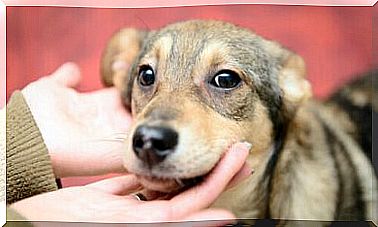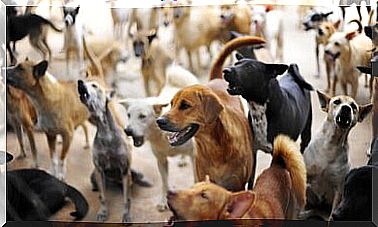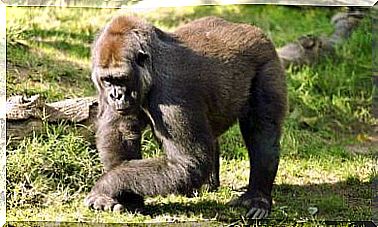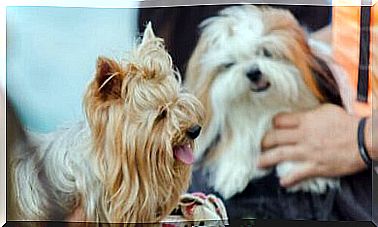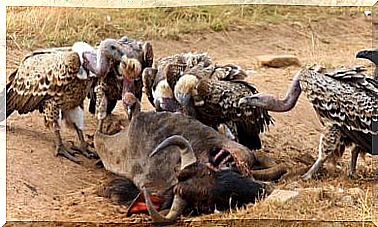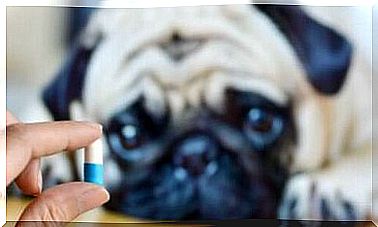Testicular Atrophy In Dogs: What Is It?

As the name indicates, testicular atrophy in dogs is the degeneration or malformation of the reproductive system of males. This type of disorder has a relatively high incidence rate, more frequent in older specimens.
This condition can affect one or both testicles and, in most cases, cause infertility. Generally, veterinarians recommend not breeding animals that have encountered this problem.
The causes that can originate testicular atrophy in dogs are many: genetic predisposition, environmental or climatic factors, such as extreme temperatures.
Bacteria, parasites or viruses can also favor this picture, as well as adverse reactions to some vaccines and poor nutrition.
Diagnosis
Many cases of muscle wasting are diagnosed by the vet during regular visits. Dogs don’t always have symptoms.
Depending on the stage of the disease, the malformation may not be detected through palpation. For this reason, in the face of the slightest suspicion, the vet will carry out more detailed tests to be completely sure of the situation.
Among the tests that are done to detect testicular atrophy, there is the examination of the semen, as well as cytology, ultrasound and biopsy.

Types of testicular atrophy in dogs
Tumors, torsion of the testicles and cryptorchidism (organs that do not descend from the abdomen to the scrotum), are among the most frequent causes of this pathology. These conditions must be treated in the right way and on time.
Testicular torsion
It occurs when the spermatic cord rotates abnormally. It can happen with organs perfectly located in the dog’s scrotum, such as those that get trapped in the abdominal area. When these episodes occur, blood flow is cut off, causing the testicle to collapse (heart attack).
The main symptoms of this condition are: moderate fever, difficulty walking and vomiting. However, these signs do not always manifest themselves; some dogs may suffer from partial and even chronic torsion, and it can only be spotted randomly.
If the testicles are stuck in the abdominal area, an ultrasound should be done to confirm the diagnosis. The applicable treatment in these cases is castration.
Cryptorchidism
This is how the testicles that do not leave the abdominal area to position themselves in the scrotum are defined. They can also remain in the inguinal canal or in the area near the groin.
Three week old puppies must have all the organs inside the bag specially made for this purpose. However, some specimens take two months to complete this process satisfactorily.
This defect is conditioned by genetics. The Yorkshire, the Poodle, the husky and Miniature Schnauzer are particularly affected. To prevent the disease from advancing, the specimens diagnosed are immediately neutered.
To confirm the anomaly, the vet will only have to feel the puppy’s genitals. An ultrasound is performed to determine precisely where the affected organs are located.
Tumors
The testicles are, after the skin, the organs that have a higher incidence to be affected by tumors. The genes and the breed of the dog play a fundamental role. Statistically, the most targeted are the Boxer and the German Shepherd.

Obvious changes in shape, increased volume or stiffness, are valid reasons for suspecting the presence of testicular cancer. In females, the increase in the size of the breasts and the drastic decrease in libido are additional symptoms.
Veterinarians facing a case of testicular atrophy perform a cytological examination of the testis in search of a diagnosis. Finally, we proceed with a biopsy.
Surgery is usually used to treat testicular atrophy; through this one tries to remove the tumor and both testicles, without considering if only one is damaged.
Testicular neoplasia generally does not develop metastases. In most cases the dog, once recovered from the operation, will continue to live in absolute normality.

